No products in the cart.
Sale
Cemadotin Hydrochloride (CAS No. 172837-41-1) – Synthetic Anticancer Peptide Analogue
Original price was: $36.00.$23.00Current price is: $23.00.
Cemadotin hydrochloride (LU103793) is a synthetic peptide analogue of Dolastatin 15 with strong anticancer potential. It blocks mitosis by inhibiting tubulin polymerization and suppresses tumor xenograft growth in preclinical models.
Description
Product Description
Cemadotin hydrochloride (CAS No. 172837-41-1), also known as LU103793, is a water-soluble synthetic analogue of the marine-derived peptide Dolastatin 15. It is a potent inhibitor of tubulin polymerization and cell cycle progression, leading to disruption of mitotic spindle formation and cell cycle arrest at the G2/M phase. Cemadotin hydrochloride has been extensively investigated in preclinical models for its anticancer potential.
Molecular Design and Background
Dolastatin 15, originally isolated from the sea hare Dolabella auricularia, demonstrated powerful cytotoxic effects but limited clinical applicability due to solubility and pharmacokinetic issues. Cemadotin hydrochloride was rationally designed as a more soluble analogue with preserved activity. By enhancing water solubility, Cemadotin maintains strong anticancer activity while being more suitable for experimental and potential therapeutic applications.
Anticancer Activity
Cemadotin hydrochloride exhibits robust inhibition of cancer cell proliferation across a wide range of tumor models. It blocks mitosis by interfering with microtubule assembly and disassembly, preventing successful chromosome segregation. This disruption of the mitotic process induces apoptosis in rapidly dividing cancer cells. Reported Ki value is ~1 μM for tubulin inhibition, confirming strong potency at the molecular level.
Preclinical Applications
Suppression of tumor xenograft growth in mouse models
Inhibition of human cancer cell lines in vitro, including breast, lung, prostate, and hematological malignancies
Mechanistic studies of tubulin-targeting anticancer agents
Combination therapy studies with DNA-damaging agents, kinase inhibitors, or immunotherapies
Key Features
Synthetic water-soluble analogue of Dolastatin 15
Tubulin inhibitor with defined Ki value of 1 μM
Induces mitotic arrest and apoptosis in tumor cells
Effective in vitro and in vivo anticancer research models
Suitable for mechanistic, pharmacological, and preclinical oncology studies
Product Specifications
| Attribute | Description |
|---|---|
| Product Name | Cemadotin Hydrochloride |
| CAS Number | 172837-41-1 |
| Synonyms | LU103793 |
| Chemical Class | Synthetic peptide analogue of Dolastatin 15 |
| Molecular Formula | C₄₂H₇₀ClN₅O₇ |
| Molecular Weight | 792.5 g/mol |
| Appearance | White to off-white crystalline powder |
| Purity | ≥98% (HPLC analysis) |
| Solubility | Highly soluble in water, DMSO, and PBS |
| Storage Conditions | -20°C, desiccated, protected from light |
| Stability | Stable under recommended conditions for ≥2 years |
| Formulation | Supplied as hydrochloride salt, lyophilized form |
| Target | Tubulin polymerization |
| Ki Value | ~1 μM (tubulin inhibition) |
| Applications | Anticancer research, tubulin-targeting studies, drug development |
Mechanism of Action
Cemadotin hydrochloride exerts its anticancer effects by inhibiting tubulin polymerization, a key process in mitotic spindle formation and cell cycle progression.
Tubulin Binding and Inhibition
Interferes with microtubule assembly and disassembly
Exhibits Ki ~1 μM for tubulin binding
Destabilizes mitotic spindles, preventing chromosome segregation
Mitotic Arrest
Cells treated with Cemadotin accumulate in the G2/M phase
Mitotic arrest triggers apoptotic pathways due to prolonged spindle checkpoint activation
Apoptotic Induction
Increases caspase activity and DNA fragmentation in cancer cells
Selectively induces apoptosis in proliferating tumor cells compared to normal cells
Preclinical Efficacy
Suppresses tumor xenograft growth in murine models
Enhances efficacy of combination treatments targeting DNA and signaling pathways
Provides a valuable model for studying microtubule-targeting anticancer drugs

Side Effects
In preclinical and experimental settings, the following effects have been observed:
Cytotoxicity: Dose-dependent inhibition of cancer cell proliferation
Apoptosis Induction: Strong activation of apoptotic signaling pathways
Off-Target Toxicity: At higher concentrations, may affect non-tumor cells
Animal Studies: Reported body weight loss and myelosuppression in murine models
Proper laboratory handling, dosing control, and protective measures are essential to minimize experimental toxicity.
Disclaimer
For laboratory research use only. Not for human use, medical diagnosis, or therapeutic application.
Keywords
Cemadotin hydrochloride, LU103793, CAS 172837-41-1, Dolastatin 15 analogue, tubulin inhibitor, mitotic arrest, apoptosis inducer, cancer research peptide, microtubule-targeting agent, anticancer drug development
Shipping Guarantee
Secure temperature-controlled packaging with monitoring
Global express delivery with full tracking and insurance
Ensures compound stability during transit
Transaction Guarantee
Guaranteed purity ≥98%
Secure global payment options (T/T, PayPal, cryptocurrency)
Full technical and handling support available
Additional information
| Weight | 0.8 kg |
|---|---|
| Dimensions | 56 × 26 × 56 cm |
What is Cemadotin hydrochloride?
A synthetic, water-soluble analogue of Dolastatin 15 with strong anticancer activity.
What is its CAS number?
CAS No. 172837-41-1.
How does Cemadotin hydrochloride work?
It inhibits tubulin polymerization, blocks mitosis, and induces apoptosis in tumor cells.
What is the Ki value for tubulin inhibition?
Approximately 1 μM.
What are the main applications?
Anticancer research, tubulin-targeting studies, and drug development.
Is Cemadotin hydrochloride suitable for clinical use?
No, it is strictly for laboratory research.
What cancers has it been studied against?
Breast, lung, prostate, hematologic cancers, and xenograft tumor models.
What is its appearance?
White to off-white crystalline powder.
How should it be stored?
At -20°C, dry, and protected from light.
Is it soluble in water?
Yes, it is highly water-soluble and also soluble in PBS and DMSO.
Does it cause side effects in animals?
Yes, including body weight loss and myelosuppression at certain doses.
Yes, including body weight loss and myelosuppression at certain doses.
Yes, it has shown enhanced effects with DNA-damaging agents and kinase inhibitors.
Is it a natural product?
No, it is a synthetic analogue of Dolastatin 15.
What quality control tests are performed?
HPLC, NMR, Mass Spectrometry, and purity assays.
Can it be reconstituted easily?
Yes, in sterile water, PBS, or DMSO.



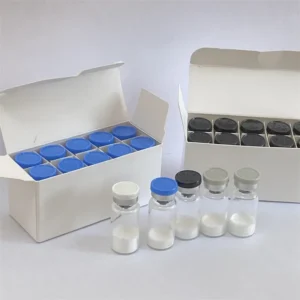
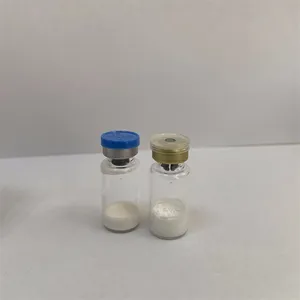
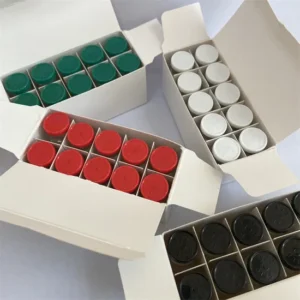

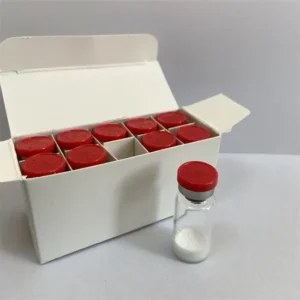
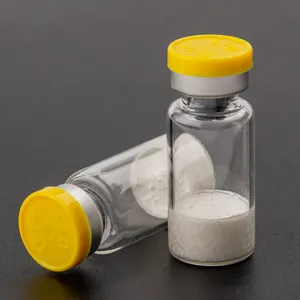
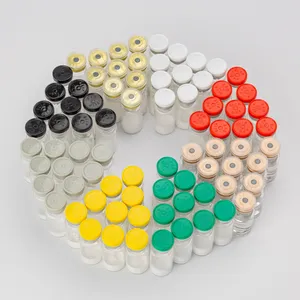

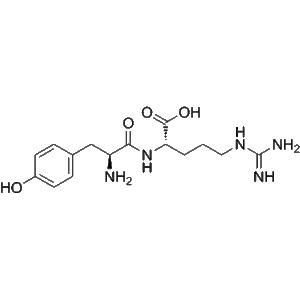
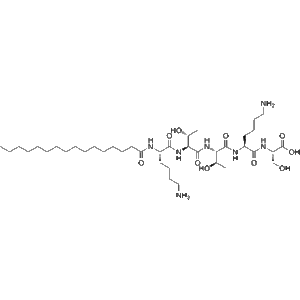
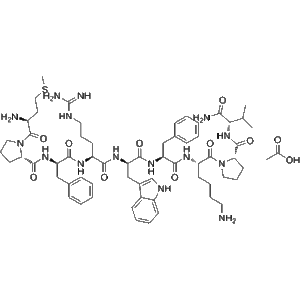
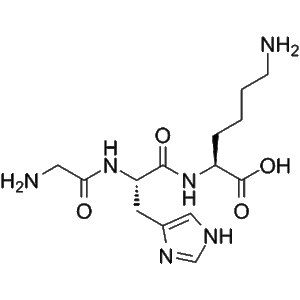
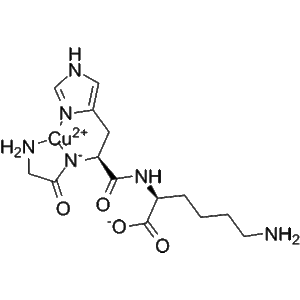
Reviews
There are no reviews yet.